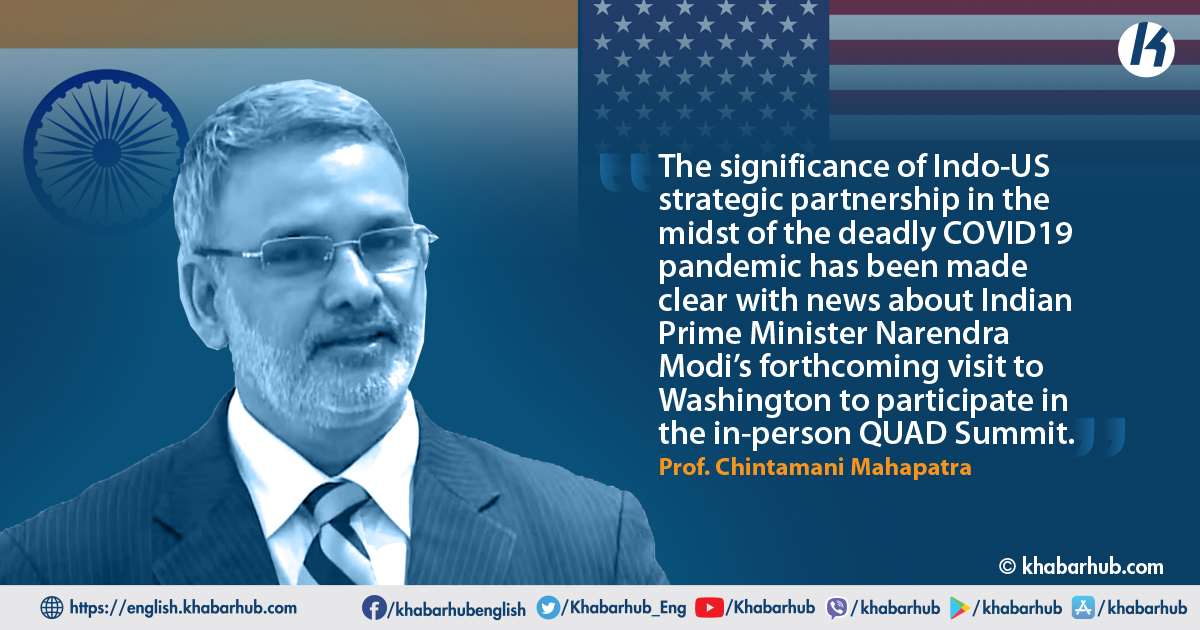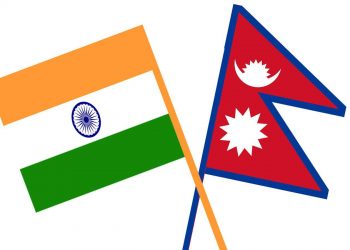US Secretary of State Anthony Blinken’s visit to India is well-timed. His short visit to India for two days accomplished many things, including sending messages to China, Pakistan, Afghanistan and symbolizing the importance attached to India by the new Biden Administration.
That Anthony Blinken’s deputy Wendy Sherman, US Deputy Secretary of State, went to China, while he himself visited Delhi and did not go to Pakistan have clear signals about the priority the Biden Administration attaches to America’s relations with India.
The significance of the Indo-US strategic partnership in the midst of the deadly COVID19 pandemic has been made clear with news about Indian Prime Minister Narendra Modi’s forthcoming visit to Washington to participate in the in-person QUAD Summit.
Secretary Blinken also clearly indicated President Joe Biden’s intention to visit Delhi, although the dates have not been worked out yet.
While the US President and the Indian Prime Minister have already met thrice in the virtual mode during the QUAD summit, G20 meet and the G7 meet, the US Secretary of State and the Indian Foreign Minister have met four times already.
Officials of the two largest democracies, which happen to be societies with diverse populations exchanged views on making democracies resilient at home and supporting democratic institutions abroad.
In addition, the 2+2 meeting between the Foreign and Defense Ministers of India with their counterparts will take place by end of this year in the United States.
Besides the periodic high-level exchanges between the two countries, the timing of Blinken’s visit to India is key.
The US troops presence in Afghanistan has come to an end; the Afghan Government is trying hard to deal with the violent spread of Taliban control in various parts of the country; countries in South and Central Asia are concerned about the spillover effect of Taliban activities in Afghanistan; Sino-Indian military standoff along the Sino-Indian border is still persistent and the world is facing a deadly second wave of the Corona Virus pandemic.
Interestingly, China and Pakistan were of the view that Blinken’s visit to India will be marred by several differences between the two countries over the issues related to Afghanistan affairs, democracy issues in India and even the differences over the vaccine issue.
According to media reports in these two countries, the US withdrawal of troops from Afghanistan has not been viewed positively in India.
That the rise of the Taliban and the prospect of the Taliban coming to power in Kabul put at stake about USD 3 billion of India’s investment in that country and various Indian projects in about 34 provinces of Afghanistan.
Secondly, several key US lawmakers had made a scathing attack on the alleged assault on democracy by the Indian Government and it was also reported that human rights and democracy issues would be discussed by Secretary Blinken with Foreign Minister S. Jaishankar.
It was also highlighted that the US had delayed the release of materials needed for the manufacture of vaccines in India.
When Secretary Blinken himself made a statement on the eve of his departure for India, it would have convinced the Pakistani and the Chinese analysts that their assessment of the outcome of this trip would be correct. But their convictions were not vindicated by the outcome of Blinken’s official engagements in Delhi.
India and the US have taken joint initiatives to address the climate issue through bilateral cooperation on clean energy development and collaboration in multilateral forums.
Secretary Blinken did discuss issues related to democracy and the Indian Foreign Minister happily discussed issues related to democracy. There was no American preaching and no Indian reaction.
Officials of the two largest democracies, which happen to be societies with diverse populations exchanged views on making democracies resilient at home and supporting democratic institutions abroad.
On vaccine issue, Secretary Blinken appreciated Indian assistance to the United States at the time of the first wave of the pandemic, highlighted the assistance given to India and announced another USD 25 million assistance.
India and the United States expressed their commitment and willingness to manufacture about a billion vaccines under the QUAD initiative and distributing them to various destinations in the world.
No huge differences erupted on the Afghanistan issue during Blinken’s interactions with his Indian counterpart. In fact, India and the United States seemed united on the position that the Taliban should not be allowed to capture power by force.
Both sides underlined the importance of regional countries playing a constructive role to bring about a peaceful resolution of differences among Afghan factions.
The United States, unlike in the late 1980s, has not completely walked out of Afghanistan even after the troops’ withdrawal.
President Biden invited Afghan President Ashraf Ghani and Abdullah Abdullah, who leads the High Council for National Reconciliation, to the White House and expressed continued support to the Afghan government.
The Pentagon has continued with the use of the Air Force to give air cover to the Afghan army in their fight against the Taliban. Financial assistance has also been given to the Afghan Government by the US. India welcomes these US moves.
While China has viewed Quadrilateral Security Initiative (QUAD) by India, the US, Japan and Australia as an ‘Asian NATO’ aiming at containment of China, Secretary Blinken made it clear in Delhi that QUAD is not a military grouping.
It needs emphasis that Secretary Blinken’s discussion with Indian leaders ensured that the Indo-US strategic partnership maintains steady growth and the two countries play a constructive role in addressing relevant issues in the Indo-Pacific for making this region peaceful and prosperous.
That, of course, does not mean that China’s aggressive moves in the South China Sea, along the Sino-Indian border and even the East China Sea are acceptable. Conversation on China’s assertiveness and offensive activities did figure in the discussion.
Both India and the US are also clear that China should be engaged where needed for constructive purposes, for instance, in tackling the climate issue.
India and the US have taken joint initiatives to address the climate issue through bilateral cooperation on clean energy development and collaboration in multilateral forums.
The QUAD member countries have also taken note of disruptive and emerging technologies where certain concerns and issues need to be addressed.
It needs emphasis that Secretary Blinken’s discussion with Indian leaders ensured that the Indo-US strategic partnership maintains steady growth and the two countries play a constructive role in addressing relevant issues in the Indo-Pacific for making this region peaceful and prosperous.
The need for a rule-based, free and open Indo-Pacific was further emphasized.
In a way, Secretary Blinken also laid the groundwork for the forthcoming QUAD summit in Washington.
(Prof. Chintamani Mahapatra is the Rector and Professor of American Studies at the School of International Studies, Jawaharalal Nehru University)
(This Opinion has been written exclusively for Khabarhub. Copyright: Khabarhub)









Comment